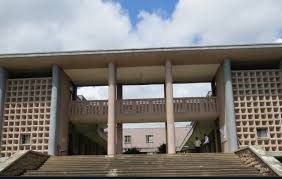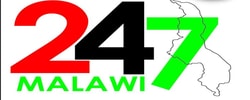By Twink Jones Gadama
In the turbulent realm of Malawian politics, the courts wield a double-edged sword that threatens to slice through the fragile fabric of society. At the center of this tempest lies the enigmatic figure of Kondwani Nankhumwa, a man whose mere presence has ignited a powder keg of political unrest. As the embattled former DPP presidential advisor and leader of the opposition, Nankhumwa’s expulsion from his party has set off a chain reaction of legal battles that threaten to engulf the nation in flames.
At the heart of this tumultuous saga lies the fundamental question of justice versus politics. In a democracy, the rule of law should be the bedrock upon which the nation stands. Yet, in Malawi, the courts have become the arena for a dangerous game of political brinkmanship, where the fate of the nation hangs in the balance. The court’s decision to grant Nankhumwa an injunction against his expulsion has only served to fan the flames of discord within the DPP and beyond.

The implications of the court’s actions are far-reaching and potentially catastrophic. By intervening in a purely political matter, the courts have opened a Pandora’s box of uncertainty and unrest. The very foundation of democracy is built upon the separation of powers, with each branch of government fulfilling its own role without encroaching on the domain of another. Yet, in Malawi, the lines between politics and justice have become dangerously blurred, threatening to tear the nation apart at its seams.
The court’s decision to wade into the murky waters of party politics has sown the seeds of discontent and division within the DPP. Members who were once united in their support for Nankhumwa’s expulsion are now seething with anger and resentment at the perceived interference of the judiciary in their internal affairs. This betrayal of trust has left many feeling betrayed and disenfranchised, fueling a sense of injustice and righteous anger that simmers just beneath the surface.
In the court of public opinion, the judges are seen as puppet masters pulling the strings of fate, manipulating the course of events to suit their own agendas. The perception of bias and corruption within the judiciary has only served to deepen the rift between the people and their government, eroding the very foundation of trust upon which a healthy democracy depends. The courts, once revered as bastions of justice, have now become symbols of oppression and tyranny, casting a dark shadow over the nation.
The specter of civil war looms large on the horizon, a dark cloud gathering strength and momentum with each passing day. The court’s decision to grant Nankhumwa an injunction has set off a domino effect of violence and unrest that threatens to spiral out of control. The people of Malawi, once united in their aspirations for a better future, are now divided along political lines, with brother turning against brother in a brutal struggle for power and control.
As the nation teeters on the brink of collapse, the court’s role in fueling this dangerous escalation cannot be ignored. The judges must tread carefully, weighing their decisions with the utmost care and consideration for the consequences that may follow. The fate of Malawi hangs in the balance, a fragile thread that threatens to snap under the weight of political turmoil and social upheaval.
In the end, the court’s actions will determine the course of history for Malawi. Will they serve as champions of justice and defenders of democracy, or will they become pawns in a dangerous game of political manipulation? The choice is theirs to make, but the consequences will be felt by all. The time bomb is ticking, and only time will tell if the courts can defuse the volatile mixture of politics and justice that threatens to blow Malawi apart at the seams.









